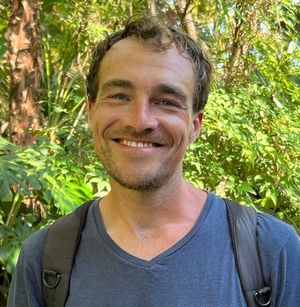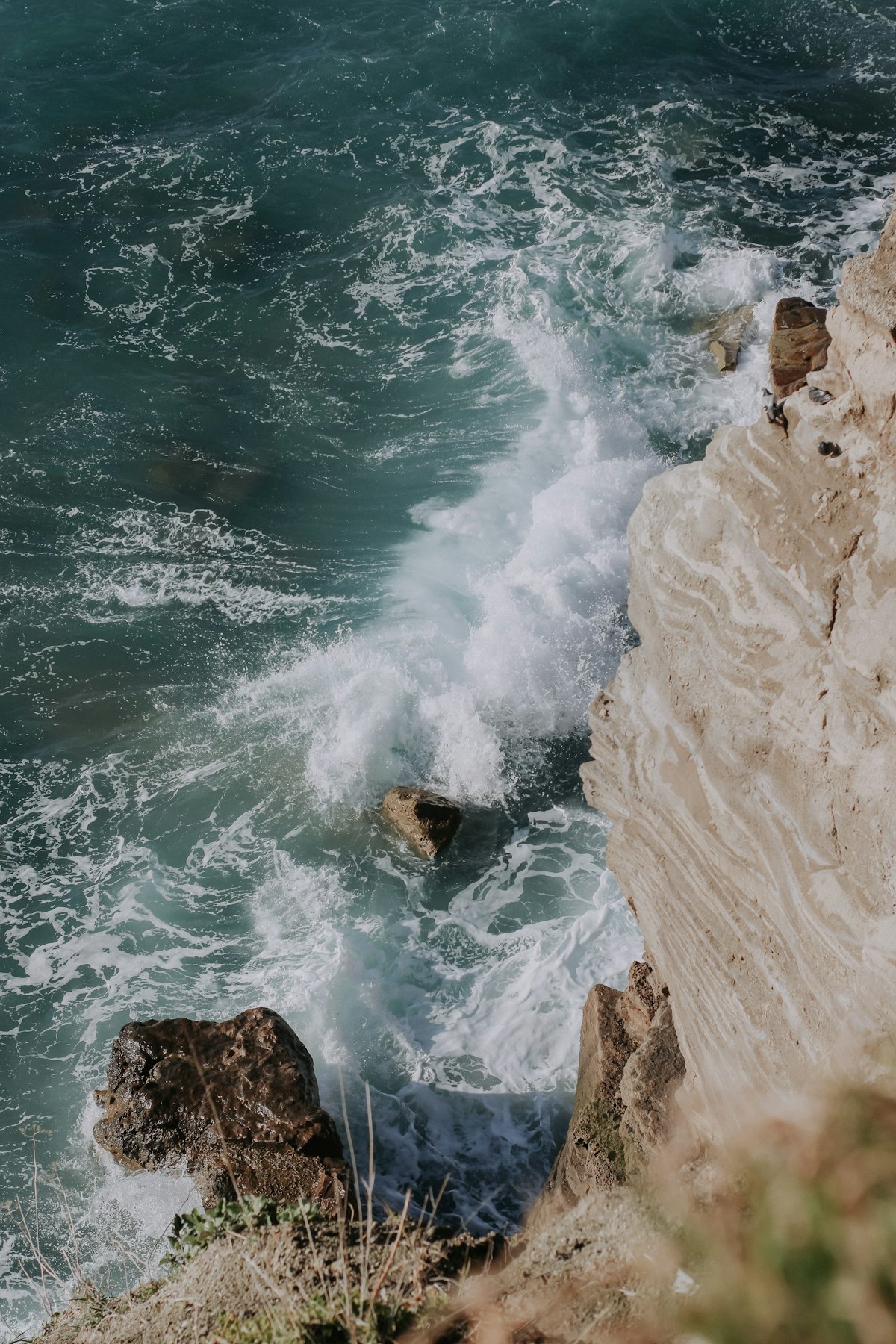The one prudence in life is concentration; the one evil is dissipation: and it makes no difference whether our dissipations are coarse or fine; property and its cares, friends, and a social habit, or politics, or music, or feasting. Everything is good which takes away one plaything and delusion more, and drives us home to add one stroke of faithful work. Friends, books, pictures, lower duties, talents, flatteries, hopes, — all are distractions which cause oscillations in our giddy balloon, and make a good poise and a straight course impossible. You must elect your work; you shall take what your brain can, and drop all the rest. Only so, can that amount of vital force accumulate, which can make the step from knowing to doing. No matter how much faculty of idle seeing a man has, the step from knowing to doing is rarely taken. 'Tis a step out of a chalk circle of imbecility into fruitfulness.
Ralph Waldo Emerson, Power
You were born as a child of Nature, a product of the movements of the Universe, the slow effect of chains of events set off billions of years ago. You and I are inseparable from this whole context into which, and by which we were born. The forces of Nature that brought us to life reside within us, animate us, continue to give us life.
Yet by the forces of domestication and socialization, we are enslaved to the artificial expectations of institutions, traditions, laws, books, and other idolatries. Our collective fears, passed down over tens of thousands of generations of human evolution, pushed us toward practices and organizations that are inherently risk averse, fear-driven, and incented negatively via threats of punishment — hardly an affirming context for free expression and childlike creativity.
The force of Nature is apparent in children. Watch a five year old playing, or trying to solve a problem, and you will see full, unironic, self-unaware engagement with the present that makes no reference to the future, no reference to potential consequences, and no reference to other people’s opinions. The more the child allows the expression of this Nature, the more likely to be labeled ADHD or “problematic” by the prison guards cosplaying as teachers & school administrators.
By the end of high school, most of the natural force has been systematically beaten out of us. We learn how to meet other people’s arbitrary deadlines. We learn how to “work and play well with others,” which mostly means suppressing ourselves, absorbing toxicity from smug assholes without fighting back or insisting on reciprocity, going along to get along, and possibly ratting out our friends in order to score points with authority figures.
When most people finish formal education, either at the end of high school or university, the number of “important” things to which we are told we must pay attention has exploded. The administrative requirements for the average individual in our current context would have been unimaginable to any generation that lived before.
This is not by accident of course.
Neither is it an accident that we are flooded day after day, second by second, with offers, promises, opportunities, distant desires, and all manner of other means to scatter our attention and dissipate our energy.
We are born flexible to Nature, and inflexible to other humans, we reach adulthood in precisely the reverse situation: we are divorced not only from the Nature that is outside, but also even from the Nature that is inside, and we grovel at the feet of unbearable people in order to maintain favorable status inside a perverse economic system.
This is not like slavery. This is slavery.
It’s just slavery with a slightly upgraded User Experience compared to its manifestations in the past. The paper chains actually hold us tighter because they feel less threatening than metal chains, and so our natural reactions to being controlled are muted by comparison to more in-your-face control methods.
The advantage of the paper chains, however, is that once they are recognized, it is certainly much easier to break out of them than it is to break out of metal chains. It just takes longer to realize the necessity of doing so.
Kierkegaard uses the term “the manifold” to describe the number and diversity of “things” we perceive — all the people, all the stuff, all the concerns, this is “the manifold.”
The secret to living a life of meaning, healthy relating, and creative expression is to regather your scattered self from the manifold. In concentrated form, your own self and energy can give new force to your Nature, and bring your particular mix of talents and curiosities out to the world to add something to the common good and actively participate in the conversation of existence.
The conversation of existence is always a conversation between actions, and never between words.
As Beaumont and Fletcher write “our acts our angels are, or good or ill, our fatal shadows that walk by us still.”
We can un-scatter ourselves by turning our attention away from the manifold, and away even from our own words and idle thoughts. We cannot think our way to creative expression. We cannot talk our way to creative expression. We cannot read our way to creative expression. We cannot watch our way to creative expression.
— and only creative expression will bring us any peace. The details of it are absolutely particular, for as Emerson elsewhere observes “the great GOD does not deign to repeat himself.”
For this reason, our creative expression cannot be a copy of anybody else’s. It cannot be designed to please a particular person or group of people. It cannot be geared toward an outcome at all. It must rather be a free and full expression of the infinite interior of the self — the rawer, and purer, the better.
That sort of expression does not come easily. Rather the opposite: it is painstaking, difficult, laborious, either in the actual act of creating, or in readying for it. Either by relentless practice in advance of a flow-state performance, or in meticulous design and craftsmanship, bringing the implicit self to the explicit world is a labor of discipline and self-love. Nobody ever succeeded without it.
Emerson, quoting a painter friend of his, puts it unequivocally thus:
“If a man has failed, you will find he has dreamed instead of working. There is no way to success in our art, but to take off your coat, grind paint, and work like a digger on the railroad, all day and every day."
The paradox is that in some sense, the acting physical body must become a slave to the mind’s higher passions in order for the creative self to be expressed. For most people, the default mode is the opposite: the mind is tasked with acquiring responses to the body’s impulses and compulsions. The mind figures out how to get the body the food, sex, and other attention it needs to stop sending annoying and distracting signals to the mind.
This absence of self control, where the body’s demands take priority over the mind’s principles is what religions understand as the state of falsehood, delusion, untruth, sin. It is a misunderstanding of the gift of consciousness, a miscalculation of the whole enterprise of existence.
Other animals cannot help but react to their physical impulses. They lack the cognitive capacity for discipline, for delayed gratification. The nature of other animals and organisms is strictly procreative, where humans have the extraordinary ability to be both creative and procreative. Given this, and given the uniqueness of our creative capacity, we ought to cherish the gift much more than we do.
Indeed, we even scatter our force further by denouncing and rejecting the divine gift of consciousness which puts demands and constraints on our behavior. “To whom much is given, much is required.” Whenever we surrender to the lower demands of the self at the margin, we exchange the deep truth of ourselves for the lie that we are only material organisms trying to survive and reproduce. We give ourselves in service to the things that we see, rather than to the whole of the universal order that is always and in every moment altering the state of existence.
How much easier it is, truly, to follow some path of necessity.
“I have to…”
“I don’t have a choice”
“I must”
All of this language is part of the lie, and the defense of the lie that causes us to abandon ourselves and try to fit our infinity into some conformity of social ease, squandering our opportunity to participate with the whole of the universe in the remaking of existence.
That really is the choice: participate in the constant change with the universe, or sit back and accept whatever comes your way. Change cannot be stopped. Neither can it be resisted. It can either me touched, and itself changed by the act of touching it, or it can be accepted as it is. There isn’t a third option.
Emerson, in Power, continues:
“Many men are knowing, many are apprehensive and tenacious, but they do not rush to a decision. But in our flowing affairs a decision must be made, — the best, if you can; but any is better than none. There are twenty ways of going to a point, and one is the shortest; but set out at once on one. A man who has that presence of mind which can bring to him on the instant all he knows, is worth for action a dozen men who know as much, but can only bring it to light slowly.”
Only one question matters, once you realize these truths: what do I do now? What decision can I make right now? What act can I perform now?
Every minute you hesitate and scatter yourself more. Every moment that you sit worrying about the outcome, procrastinating getting started, planning how you will get from your first step to what you currently perceive to be your goal, is a moment you will not get back, and will stack up with all the other wasted moments.
On the heap of all that waste, you can, however, choose to grow something new. You can redeem all of that lost time by what you do now, and what you do next.
Nobody else is watching. Nobody is keeping any score. It’s just a matter of whether you want to live while you are alive and experience the full richness and texture of the life you have been given to live as you choose. Keep choosing challenge, keep avoiding easy comforts, and you will find more force than you could possibly need to make your mark and enjoy your time here on this planet.








